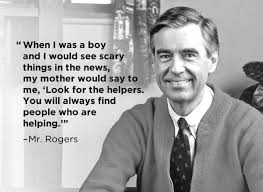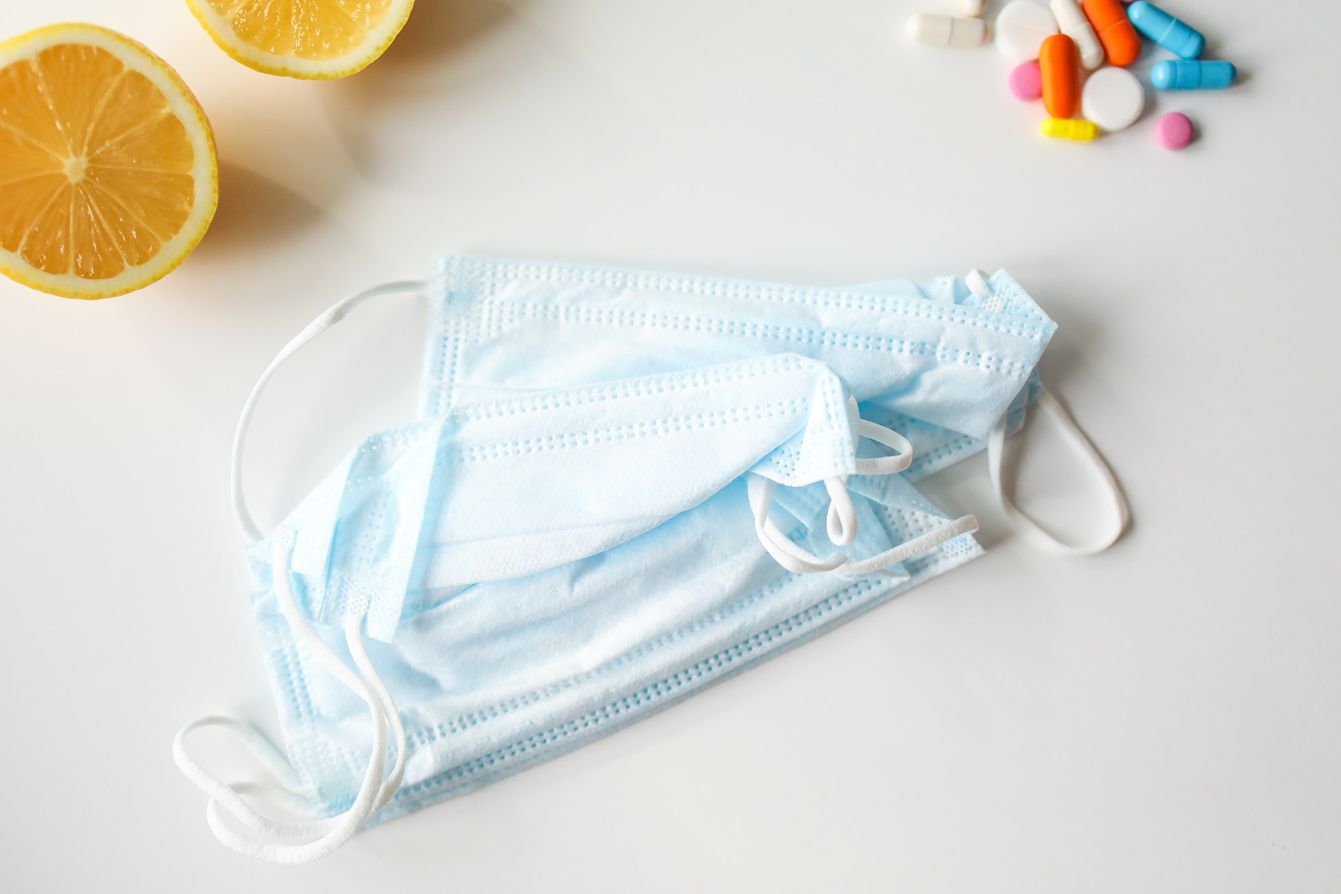With supermarkets running out of everyday essentials and the neverending media reports on the ever-increasing number of confirmed COVID-19 cases, it’s easy for children to feel overwhelmed and panicked that the end of the world is nigh.
Collett Smart is Mums At The Table’s resident psychologist, and she has a few strategies parents can take to help children—and ourselves—feel calm.
How to behave
Our kids are going to watch our every action, so what we do will go a long way to helping them.
Model
Even teenagers look to the adults in their lives for behavioural cues. They learn from us about how concerned they should be about anything unknown or new. Even without words, our behaviour can inadvertently create a climate of distress in our homes. So it is important that we have support people to turn to, if we are feeling anxious ourselves.
Normalise anxiety
Concern for the unknown or some new disease is a perfectly normal reaction. Encourage your children that not all anxiety is bad. It is our brain’s brilliant way of keeping us safe from and alert to danger. Anxiety works like an alarm system, which prompts us to think of ways to look after ourselves. It’s just that an oversensitive alarm system can lead us to irrational thoughts and fears, which affect our healthy daily functioning. So how do we keep this alarm system in check, during this time? (Keep reading on for some tips.)
Monitor your child
Even within developmental stages, children will display differences in how they respond to certain pieces of news or information. Just because your child does not verbalise that they feel anxious (they may not even recognise anxiety in themselves), does not mean they are not struggling with something they have heard. You know your child best, so looks for signs that they are not doing well. These include:
- regression
- sleep issues (struggling to fall asleep, waking up in the night and worrying, nightmares)
- changes in appetite
- changes in behaviour (acting out, withdrawal, bouts of crying for seemingly small things)
- separation anxiety (not wanting to go to school, do usual activities or to be left alone)
- sudden headaches or tummy aches
- drop in school performance
What to say
At this time, it is a good idea to be proactive. Start by finding out what your child has heard and what they know, before launching into too many details.
This can be done by asking open-ended questions like, “Can you tell me what you heard about that?”
You can also ask specifically if they have any fears or concerns. Keep in mind that your child’s primary response to “scary” or unknown news can often be emotional, rather than intellectual. The real question behind their question is usually, “Am I safe?”
Listen well
When your children come home with stories from a classmate who said that you or Grandma might die, this could be the underlying fear of the COVID-19 stories for them.
Rather than simply saying, “Oh, I’ll be fine” or “That’s a silly thing to say”, acknowledge the emotion with, “That must have felt scary to hear. I can tell you are worried about it.”
Do lots of listening. Ask more open-ended questions and then listen some more. Even if your child’s question or fear seems “silly”, if it is important to them, it should be important to you. This helps your child feel heard and develops a sense that you care about them.
How much to say
Tailor your approach to each child’s age, maturity level, ability to process information and exposure to reports about the virus. Molly Gardner, a paediatric psychologist told TIME magazine, “Being informed and being anxious are two different things. . . . The more we beat around the bush with kids, the more they might get confused.”
With most very young children, we know that shielding is the best option, but older children and teens have more exposure to current events. Be aware that adults can sometimes assume their teens are coping with the overload of media-reported trauma while quietly imploding. For many teens, their imaginations (fuelled by sometimes unreliable social media-reported trauma and a constant stream of graphic images) can magnify the events to even greater levels of terror.
Our tweens and teens can usually cope with frank discussions. Again, stick to the facts. However, highlighting the misinformation and hype, represented in some media reports, can teach young people to become more critical media users themselves. Find realistic and trusted news sources that your family can follow.
Read our articles related to COVID-19
What to do
A study about empowering families during a healthcare crisis recommends the CARE approach:
Choices
Agenda
Resilience
Emotional Support
Engaging the CARE principles helps young people and families feel empowered. It reduces, and may even improve, the risk of anxiety and trauma responses.
Choices: Offer power in a powerless environment
This might look like:
- Channelling their anxiety into useful action. For example, everyone can do something to help slow the spread of disease, using hand sanitiser, by coughing into your elbow, washing your hands regularly.
- Distraction, because when we fixate on negative information our anxiety grows. Yet, if we turn our attention elsewhere, it shrinks. Ask your child to think of some distraction activities, such as doing their homework, remaining physically active, cuddling a pet, playing a board game or watching a favourite show.
- Encouraging teens to take a break from, or at least limit exposure to, news and social media reports about the virus.
Agenda: Let children and families know what to expect and what is expected of them.
- If the school were to close for a few weeks, explain the school’s plan is for learning. (Final year students might be especially anxious about this).
- If you child is disappointed that an event has been cancelled, explain what “social distancing” means and why “flattening the curve” is an important part of government decisions.
- Talk about what steps you would take if a family member did contract the virus (because kids are wondering about this!). What is your family plan?
- Think about what activities they would like to do during this time.
Resilience: Highlight strengths and reframe negatives
- Research suggests that teenagers feel better when they turn their attention to supporting others during difficulty. There is great power in volunteering.
- Talk about what “love in action” looks like in a time like this. Think about what you would do to support grandparents, family members or neighbours who are vulnerable or have a disability. (For example, collect and drop off food parcels, toiletries and medicines.)
- Find current examples of “helpers”, people who are supporting others through the tough times.
My favourite quote on reframing negatives is by American television personality and Presbyterian minister Fred Rogers:

Emotional support: Recognise and normalise common fears and responses
- Keep providing daily emotional first aid. Check in on how your children are feeling.
- Some young people find that their faith brings them great comfort, in times of crisis. Support them in this.
- You might like to help your child begin a daily (short-term) journal or worry box, where they can write down their fears. Then be sure to balance these with something from principles 1, 2 and 3.
Find some humour
Not part of the CARE strategy, but important nonetheless. Humour can often highlight the craziness of humanity, but also normalise our response to the unknown. There are so many memes going around. See who can find the best one.

A few more tips
Daron Pratt is Mums At The Table’s resident chaplain and he too has a few strategies:
- Remember younger children find it hard to discern fact from fable, so monitor what your kids have access to.
- Regular conversation is crucial where you can discuss what is happening from a scientific/medical angle. Conversation in an attached loving, warm relationship calms anxiety significantly.
- Maintain your daily routine. This helps to keep children calm. Regular meals, bed time, bath time, play time etc are all helpful in managing fear and anxiety in children.
- Stock up on some extra food each time you shop so that the staples are in the cupboard—but don’t hoard.
- If home isolation or school closures occur, make it memorable. Play board games, cook special meals, read books together, watch good family programs and get outdoors. Above all, take the opportunity in the midst of this to create special family bonding memories.
- Trust in God. It always helps, especially in times like these.
Prayer and worship
Karen Holford is Mums At The Table’s resident family counsellor and according to her, “In this time of anxiety and stress, look for the Bible verses that bring peace and comfort and focus on them. Learn them in fun ways and sing any songs you know that are based on these Bible verses. Act out the story of Jesus calming the storm and reflect on how He calms the storms in our world and in our hearts. Anxious children may need interactive prayers that they can see and experience. Draw around your hands and cut out the shape. Imagine this is the hand of God. Write your worries on the palm of the hand. Then remember that God cares about us very much, and we can leave all our worries in His hands.
“At times of major crisis, like this COVID-19 pandemic, there are many things we hear and see in the news from around the world that can overwhelm us with a sense of helplessness and tragedy. It’s important to put these things in God’s hands too so that they do not overwhelm. This is where we can leave our prayers for all the suffering people, those who have lost loved ones, the medical staff and the scientists who are looking for cures, medicines and vaccines.
“These are challenging times. None of us has a clear road map about how this pandemic will be resolved in the end. We will have moments of anxiety as we face difficult challenges and decisions. Talking about our dilemmas together, comforting each other, and praying for each other will all help us to navigate this unknown territory. But we can be sure that God does have the map; He knows how this will work out; we know that He is lovingly longing to take us all away from this broken world forever. One day He will wipe away all our tears forever and calm all of our fears with His love.
“For now, He is with us and our families through this crisis. He holds us all close to His heart. He cries when we cry, and He hurts when we hurt. He comforts us in all that we are facing so that we can comfort others and pass on His love. And He invites us to hand over all our anxieties to Him, because He cares so much for each of us.”
Websites
Here are some trusted websites to keep up-to-date with the COVID-19 situation:
- The Australian Government Department of Health Coronavirus health alert
- New Zealand Government information on COVID-19
- Worldometer COVID-19 statistics
- World Health Organization’s rolling updates
How helpful was this article?
Click on a star to rate it!
0 / 5. 0
Be the first to rate this post!
Mums At The Table
Related posts
Subscribe
Receive personalised articles from experts and wellness inspiration weekly!


